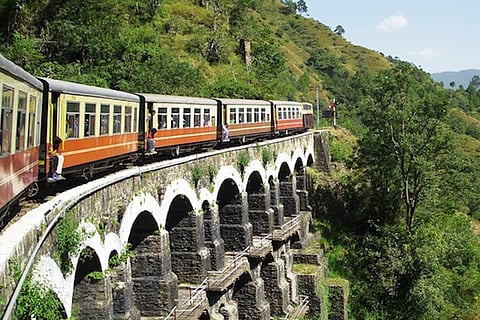

The Government of India has issued a Request for Qualification (RFQ) for 150 private trains along 109 routes in 20 clusters. The intent so stated is to fill the gap of increasing demand for trains, and offer a world class travel experience. The private train operators are expected to procure, maintain, operate their trains. These actions follow the Bibek Debroy recommendations, which had sought to split the Railways vertically and horizontally.
That means, the private operators have the powers to charge and collect fares, and employ their own staff. They can procure their coaches and locomotives from anywhere, and will only have to pay license fees for using the railway track.
What does this mean for a common rail passenger?
The private players would obviously go for high returns. Flexi-fare regime as in airways will be introduced here too. Fares are likely to triple – or more – than the current rates. The Cabinet had already approved of the Rail Development Authority. The regulator will take over the control of the Railways and the Railway Board will be subservient to it.
It’s important for us to look at the British experience with privatising Railways. After privatisation, British Rail became (and continues to be) unpopular among Britishers. Franchises were awarded to the highest bidder, therefore fares were high. Companies bid on higher growth but ended up broke. Several MPs warned that the rail companies were allowed to walk away from their obligations leaving the taxpayers to pay up.
Private ownership has meant public money becomes private dividend. The private companies knew that they would be bailed out in the event of financial problems. Only the East Coast Rail, now in government control, is profitable. It gave one billion GBP to the state, while five private companies took subsidies of 3 billion from the state! The British experience has forced a rethink in other European countries on the reform of their railway system.
That would likely be the norm in India, too. Private companies will try to reap profits but abandon obligations in hard times.
Whether these new trains will add to the capacity is doubtful. The Indian Railways is currently running at about 100-160% capacity on some major routes. With the new system, trains will be cancelled outright, and may not get the desired time table. Commuters, petty traders and others will be in trouble, as Passenger trains will not run.
Already in India, we witnessed the Metro systems in PPP mode not abiding to the agreements. The operator charges 3 times more than what was agreed to, in the MOU. Mumbai and Hyderabad Metros are examples. Metro Man E Sreedharan is on record stating that public transport will not be viable, and that the government will have to subsidise.
Ultimately, the middle class and lower sections will find rail travel more expensive. The Indian Railways, which transports a bulk of the citizens, and is popular for its cheap travel will disappear sooner than later.
Sagar is a Superstar Member of TNM. Views expressed are the author's own.